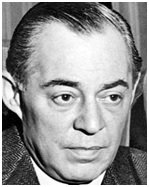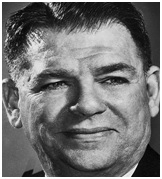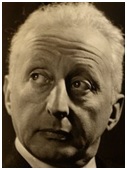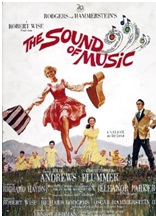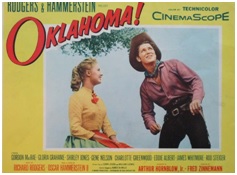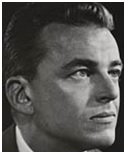|
 |
|
 |
|
|
||
Richard Rodgers and Oscar Hammerstein - Creativity and
Music
Richard Rodgers (1902-79) and Oscar Hammerstein (1895-1960)
American composers of musicals. Rodgers is pictured right with Hammerstein below.
Their famous musicals are... The Sound of Music The King and I South Pacific Carousel (with the big hit, You'll Never Walk Alone) Oklahoma! Hammerstein also wrote Show Boat with Jerome Kern (pictured right).
Why were they such great songwriters? 1. Emotional simplicity Rodgers’ superb tunes and Hammerstein’s lyrics were:
2. Innovation They wanted to give their audience not just songs but a story that informed as well as entertained, using love as a central theme. They dealt with:
The first song and an exciting climax were vitally important to them. Hammerstein’s most important rule was that “The first act had to be twice as long as the second, and the second had to have twice as much in it”. They were always prepared to try something new (like ballet in Oklahoma). 3. Determination Rodgers was determined to write great songs, the first of which appeared on Broadway when he was only 16. Hammerstein had to endure a string of flops, until his partnership with Rodgers and their first huge hit Oklahoma! in 1943 (pictured right is a poster for the 1955 film). But they didn’t get it right all the time and had three flop musicals. They also had to suffer the shock of bad reviews for the first night of The Sound of Music.
4. Teamwork Each partner’s brilliance inspired the other with Hammerstein writing the words first. After Hammerstein died of cancer, Rodgers never had a hit with anyone else, even Alan Jay Lerner (pictured right), the lyricist of My Fair Lady. They excited and energized each other, both impressed by the other’s talent and professionalism. Rodgers’ instinctive brilliance (he wrote music very quickly) was counteracted by Hammerstein’s:
They both:
5. Love of music They:
Rodgers said in 1970 that to quit the theatre “would be a kind of not living”.
6. Intuition Rodgers worked on instinct. “When a show is in good shape, you don’t have to wait for the newspapers to tell you; you can feel it in the air”, he said. Hammerstein was more methodical In the final rehearsals of a show, Hammerstein stood in the theatre to assess how much the audience would like it. 7. Learning They (pictured right together) were continually trying to improve and learn from their mistakes. Once they hired an actress without an audition and vowed never to do it again after her disastrous performance.
Key quotes on creativity and songwriting I just couldn’t write anything without hope in it (Hammerstein). It took about as long to compose it as to play it (Rodgers talking about Oh! What a Beautiful Morning from the musical Oklahoma!)
|
|
|
||
|
|
||
| Copyright © wisdomtowin.com 2025 All Rights Reserved | ||
|


